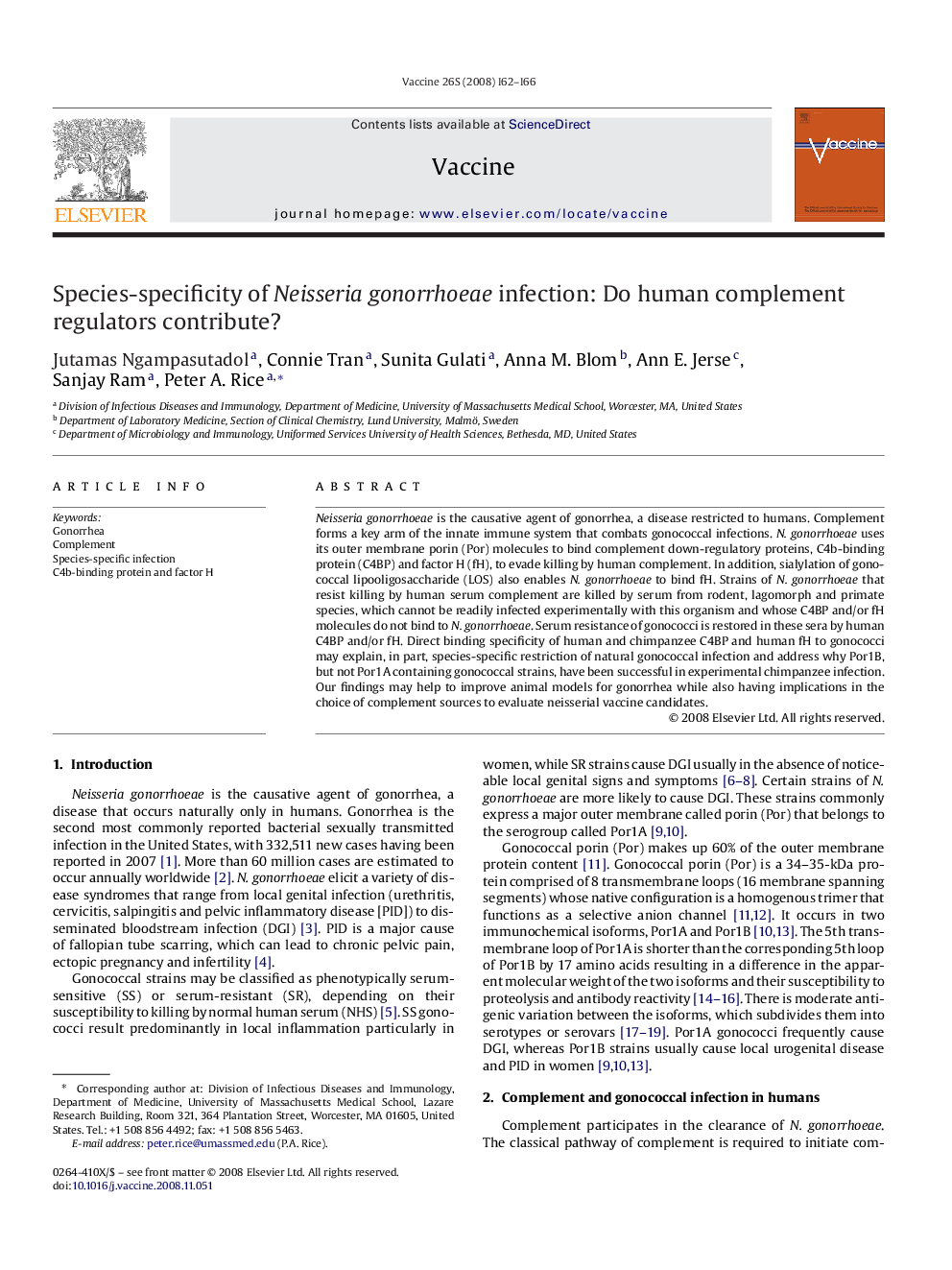| کد مقاله | کد نشریه | سال انتشار | مقاله انگلیسی | نسخه تمام متن |
|---|---|---|---|---|
| 10970422 | 1103133 | 2008 | 5 صفحه PDF | دانلود رایگان |
عنوان انگلیسی مقاله ISI
Species-specificity of Neisseria gonorrhoeae infection: Do human complement regulators contribute?
دانلود مقاله + سفارش ترجمه
دانلود مقاله ISI انگلیسی
رایگان برای ایرانیان
کلمات کلیدی
موضوعات مرتبط
علوم زیستی و بیوفناوری
ایمنی شناسی و میکروب شناسی
ایمونولوژی
پیش نمایش صفحه اول مقاله

چکیده انگلیسی
Neisseria gonorrhoeae is the causative agent of gonorrhea, a disease restricted to humans. Complement forms a key arm of the innate immune system that combats gonococcal infections. N. gonorrhoeae uses its outer membrane porin (Por) molecules to bind complement down-regulatory proteins, C4b-binding protein (C4BP) and factor H (fH), to evade killing by human complement. In addition, sialylation of gonococcal lipooligosaccharide (LOS) also enables N. gonorrhoeae to bind fH. Strains of N. gonorrhoeae that resist killing by human serum complement are killed by serum from rodent, lagomorph and primate species, which cannot be readily infected experimentally with this organism and whose C4BP and/or fH molecules do not bind to N. gonorrhoeae. Serum resistance of gonococci is restored in these sera by human C4BP and/or fH. Direct binding specificity of human and chimpanzee C4BP and human fH to gonococci may explain, in part, species-specific restriction of natural gonococcal infection and address why Por1B, but not Por1A containing gonococcal strains, have been successful in experimental chimpanzee infection. Our findings may help to improve animal models for gonorrhea while also having implications in the choice of complement sources to evaluate neisserial vaccine candidates.
ناشر
Database: Elsevier - ScienceDirect (ساینس دایرکت)
Journal: Vaccine - Volume 26, Supplement 8, 30 December 2008, Pages I62-I66
Journal: Vaccine - Volume 26, Supplement 8, 30 December 2008, Pages I62-I66
نویسندگان
Jutamas Ngampasutadol, Connie Tran, Sunita Gulati, Anna M. Blom, Ann E. Jerse, Sanjay Ram, Peter A. Rice,